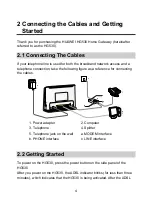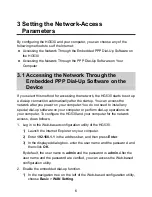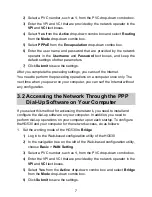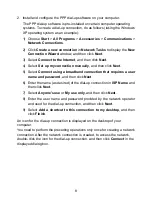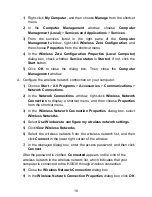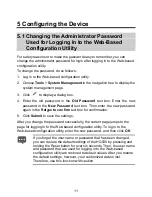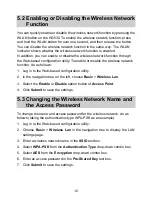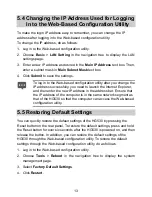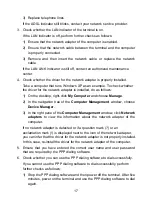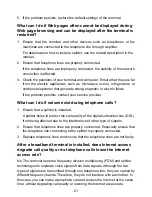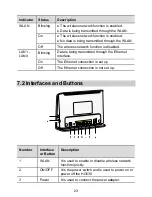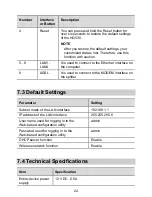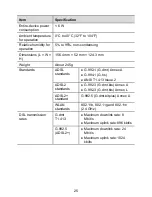
18
2) Restore the default settings of the terminal.
If the problem persists, contact your network service provider.
7. Check whether the proxy server of the Web browser is correctly configured.
Take the Internet Explorer installed on a computer that runs Windows XP
as an example. To check whether the proxy server of the Web browser is
correctly configured, do as follows:
1) Start the Internet Explorer.
2) Choose
Tools
>
Internet Options
.
3) In the
Internet Options
dialog box, click the
Connections
tab.
4) In the
Proxy server
group box of the
Local Area Network (LAN)
Settings
dialog box, ensure that
Use a proxy server for your LAN
(These settings will not apply to dial-up or VPN connections).
is not
selected.
8. Try to access multiple other Web sites to check whether the terminal can
access.
If the terminal still cannot access other Web sites, contact your network
service provider.
What can I do if the terminal cannot access the Internet
through a wireless network adapter?
1. Ensure that the cables of the terminal are properly connected.
2. Check whether the WLAN indicator of the terminal is on.
If the WLAN indicator is off, you can infer that the wireless local area
network (WLAN) function of the terminal is disabled. In this case, enable
the WLAN function. For details about how to enable the WLAN function,
see the manual of the terminal.
3. See the description of the wireless network adapter that is installed on the
computer and check whether the wireless network adapter supports the
802.11b and 802.11g protocols.
If the wireless network adapter does not support the 802.11b and 802.11g
protocols, replace it with the network adapter that supports the protocols.
4. Check whether the driver for the wireless network adapter is properly
installed on the computer.

